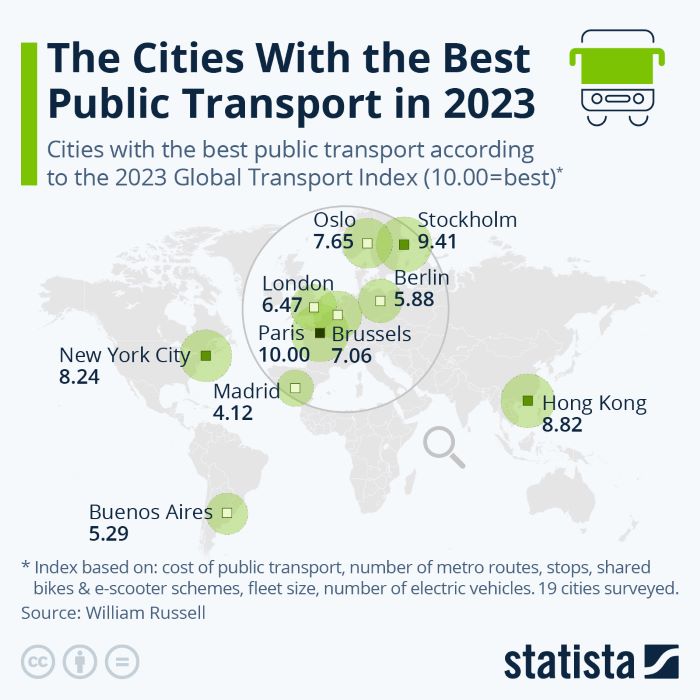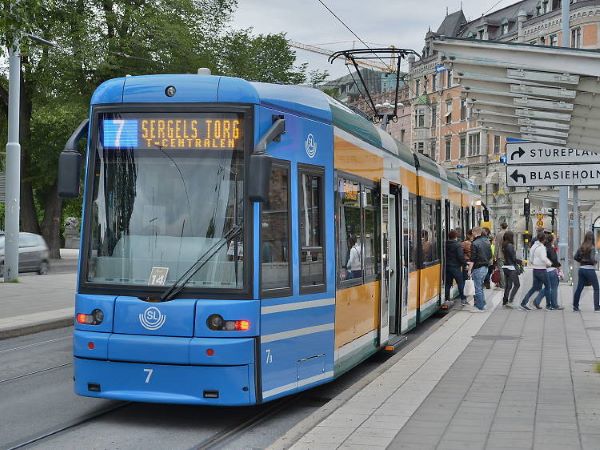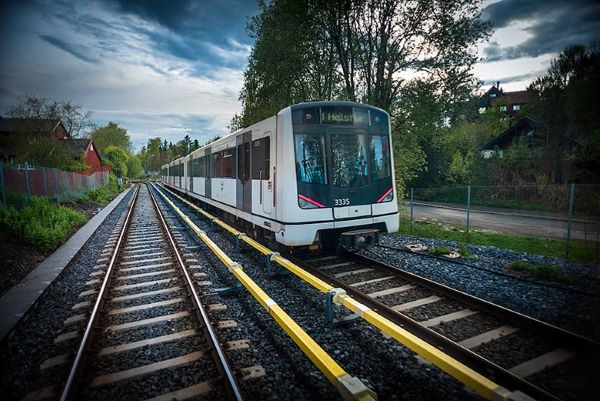Public transportation is a vital part of any modern city. It provides a way for people to get around without having to own a car, and it can help to reduce traffic congestion and air pollution. According to Statista, there are over 3.78 billion users of public transport all over the world.
Public transportation is important for a number of reasons.
- It provides mobility for people who cannot or do not want to drive. This includes people who are too young, too old, or disabled to drive, as well as people who choose not to drive for environmental or financial reasons.
- It reduces traffic congestion and air pollution. Public transportation can carry many more people than cars, so it is a more efficient way to move people around. This can help to reduce congestion and improve air quality.
- It is more affordable than owning and operating a car. Public transportation is often subsidized by the government, making it more affordable for low-income people.
- It can help to create a more equitable society. Public transportation makes it possible for people to live and work in different parts of the city, regardless of their income or access to a car. This can help to create a more diverse and inclusive community.
In addition to the benefits mentioned above, public transportation can also help to boost the economy, create jobs, and attract businesses and tourists.
While every city in the world has their own public transportation network, some of them are better than others, with more extensive networks, more frequent service, and more reliable vehicles. According to William Russell's Global Transport Index, here are the top 5 cities with the best public transportation system:
- Paris
- Stockholm
- Hong Kong
- New York
- Oslo
The Global Transport Index mentions that Paris has the best public transportation in the world with an average ticket price of £1.85.

Source: Statista
1. Paris

Source: Travel Triangle
Paris is known for its romantic atmosphere, its world-class museums, and its iconic landmarks like the Eiffel Tower. But what many people may not know is that Paris also has an excellent public transportation system.
Paris achieved top marks in the index with a score of 10 out of 10. This is due to a number of factors, including:
- Extensive network: Paris has a comprehensive public transportation network that includes metro, buses, and suburban trains. This makes it easy to get anywhere in the city quickly and easily.
- Frequent service: Paris' public transportation system is very frequent, with trains and buses running every few minutes. This means that you never have to wait long for a ride.
- Affordable fares: Public transportation in Paris is very affordable, with the average ticket costing just £1.85. This is relatively inexpensive considering the cost of living in Paris is among the highest in the world.
In addition to its traditional public transportation options, Paris also has many innovative new mobility options, such as electric scooters. There are ten electric scooter schemes available in Paris, including Lime, Bird, Bot, Wind, Tier, Flash, Hive, Voi, Dott, and Uber's new Jump. These scooters are a great way to get around the city quickly and easily, especially if you're on a tight budget.
2. Stockholm

Source: Time Out
Stockholm, Sweden, is one of the most environmentally friendly cities in Europe, thanks to its commitment to public transportation and electric vehicles. The city is working towards the ambitious goal of being fossil-fuel-free by 2040.
Stockholm has a densely populated city centre, but its public transportation system makes it easy for everyone to get around. The city has more bus stops per 100,000 people than any other city on the list, and it operates many public transport vehicles. This means that most districts in the city are easily accessible for both tourists and residents.
In addition to its extensive public transportation system, Stockholm is also home to a growing number of electric vehicles. Sweden has made significant progress in electric mobility in recent years, and now has more electric vehicles per 100,000 people than any other country in Europe.
3. Hong Kong

Source: Treksplorer
Hong Kong ranked third in the Global Transport Index, with a score of 8.82 out of 10. The city's public transportation system is known for its efficiency and affordability.
Commuters in Hong Kong rely heavily on the city's rail system, which is reliable and extensive. The rail system is not available 24/7, but it is still the most popular way to get around the city.
Hong Kong also has a comprehensive bus network, as well as ferries, trams, and taxis. The city's public transportation fares are very affordable, with a one-way ticket costing just £1.22.
Although electric scooters are banned in Hong Kong, there are many other ways to get around the city. Residents and tourists can choose from a variety of transportation options, including taxis, ferries, rail, buses, and trams.
Hong Kong also has a high number of electric vehicles per 100,000 people, with nearly 59,000 EVs per 100,000 people.
4. New York

Source: The Architect's Newspaper
New York City is ranked fourth on the list, with a score of 8.24 out of 10. The city's public transportation system is known for its comprehensiveness and affordability.
New York has the most metro routes of any city that is being compared on the list. It has 28 routes running through the city. The subway system is also available 24 hours a day, seven days a week. This makes it a convenient option for people who work or travel at night.
For the cost of £2.20 ($2.75 in USD), you can use the subway system citywide and transfer to other subway lines as many times as you need. This is a very affordable price, especially considering the cost of living in New York City.
5. Oslo

Source: Life in Norway
Oslo, the capital of Norway, scores 7.65 out of 10. The city has a strong commitment to public transportation and electric vehicles. Oslo's public transportation system is efficient and affordable, with a one-way ticket costing £2.99. The city's metro system has 5 lines, and it is currently being expanded.
Norway has seen a significant increase in the sale of electric cars in recent years, and Oslo has one of the highest concentrations of electric vehicles in the world. The Norwegian government has been supportive of the electric vehicle industry, waiving import duties and car registration fees for electric vehicles.
Comments
All Comments (0)
Join the conversation